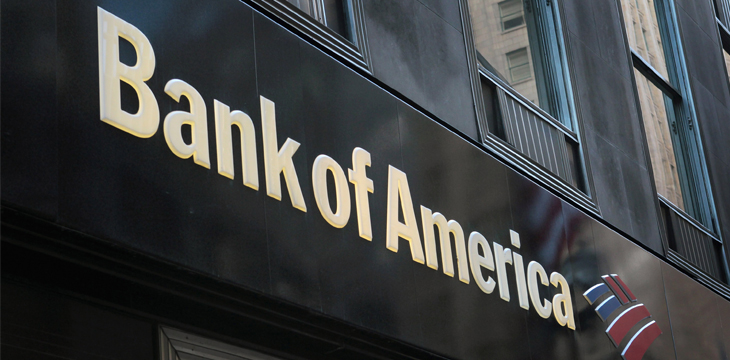
|
Getting your Trinity Audio player ready... |
Bank of America has secured its latest cryptocurrency patent, in the form of a hardware device designed to securely store cryptographic keys offline.
Awarded by the U.S. Patent and Trademark Office this week, the patent suggests how the technology could be used for securing cryptocurrency wallets and transactions, as well as in a number of other blockchain use cases.
The patent describes a hardware device that stores private keys without an Internet connection, solving one of the key vulnerabilities in private keys, which are often stored on Internet-connected devices and protected only by a password.
According to the filing, “In specific embodiments of the system, the authentication routine is conducted as part of a crypto-currency transaction, a blockchain transaction or the like…[private keys] are continuously susceptible to being misappropriated. Therefore, a need exists for a secure means for storing private cryptography keys.”
It noted, “The desired storage means should reduce the risk of misappropriation of keys due to the keys being stored internally within a computing node that is frequently or, in some instances, continuously accessible via a public communication network, such as the Internet. Moreover, the desired storage means should provide for real-time responsiveness to tampering, such that misappropriation of the private cryptography keys is prevented.”
While the system described in the patent isn’t limited to cryptocurrencies, the numerous references to crypto transactions throughout the documentation suggests this may be where Bank of America sees the technology in future.
As one of the more prolific companies tying up patents for blockchain systems, Bank of America has filed over 20 separate patent applications, Fortune reported in June.
Bank of America is also a member of the Hyperledger consortium, in addition to their ongoing research and development around blockchain tech. CTO Catherine Bessant said that while many of the patents were not yet production-ready, the bank’s strategy was to position early for future deployments of these types of technologies.
“We’ve got under 50 patents in the blockchain/distributed ledger space. While we’ve not found large-scale opportunities, we want to be ahead of it, we want to be prepared,” Bessant was quoted by the news outlet as saying.

 11-22-2024
11-22-2024


